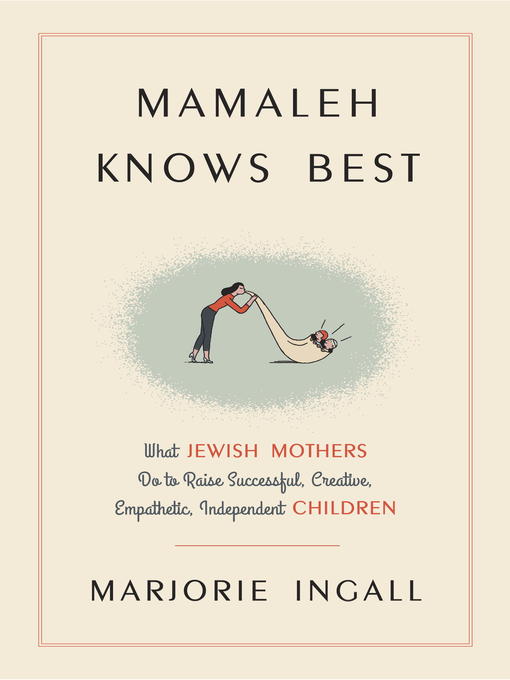
Mamaleh Knows Best
What Jewish Mothers Do to Raise Successful, Creative, Empathetic, Independent Children
کتاب های مرتبط
- اطلاعات
- نقد و بررسی
- دیدگاه کاربران
نقد و بررسی

Starred review from June 20, 2016
In this insightful and humorous guide to being a better parent, Ingall, a columnist for Tablet magazine who grew up Conservative, attended an Orthodox day school, and married a Reform Jew, draws on her own experience as a mother, as well as a plethora of Jewish and secular sources, to create a highly readable parenting manual that takes into account just about every issue a parent might encounter. Ingall begins by explaining the history of the stereotypical Jewish mamaleh and her age-old wisdom, and goes on to tackle topics such as maintaining discipline, distrusting authority , and emphasizing education without fetishizing it. The ultimate goal is "to keep our kids from becoming schmucks" and raise "self-sufficient, ethical, and accomplished kids." Yiddish words are thrown around (a glossary at the end will help) as she performs a comedy routine that is full of chutzpah and pizzazz. Ingall implores parents to be firm and sincere, and help their children create meaning in their lives. Ingall's engaging guide will help parents, Jewish or not, navigate the jagged terrain of child-rearing with a hearty dose of confidence and laughter.

July 1, 2016
Forget the tiger mom. What an aspiring superchild--or just a mensch, even--needs is a good Jewish mother.What's the difference, asks Tablet columnist Ingall (The Field Guide to North American Males, 1997, etc.), repeating an old Borscht Belt joke, between said mother and a Rottweiler? A Rottweiler eventually lets go. Granted, writes the author, in a fraught time, compounded by the Holocaust being a living memory, there are reasons for mamaleh to keep a close eye on the kids. Whether pampered and overprotected or not, the success of Jewish children in adulthood is all out of proportion to the population. If 1 percent of the world is Jewish, then half of the Pulitzer Prize winners in nonfiction and one in five Nobel Prize winners belong to the tribe, a pattern that extends far back in history. So how to keep from suffocating the kid before he or she grows up into that genius of promise? Maybe worry a little less, try to be a little happier, and try to relax. Still, raising a "family with traditional Jewish values" involves plenty of nurturing and plenty of time. Admonishing that the parent is the child's primary educator, Ingall counsels careful attention to transmitting those values of education, spirituality, honesty, and the like while encouraging independence and the untrammeled development of personality. This entails a bit of risk, of course. "I want my kids to learn to cook," she writes, adding good-naturedly, "because, hey, less work for me." But learning to cook means ruining a few dishes, scorching a saucepan or two, and maybe destroying a few utensils--which means getting used to the idea of letting the kid fail in order to learn. Few of Ingall's useful, reader-friendly prescriptions would be out of place in a goyish child development manual, but the flavor is echt Jewish and plenty tasty at that.
COPYRIGHT(2016) Kirkus Reviews, ALL RIGHTS RESERVED.

























دیدگاه کاربران